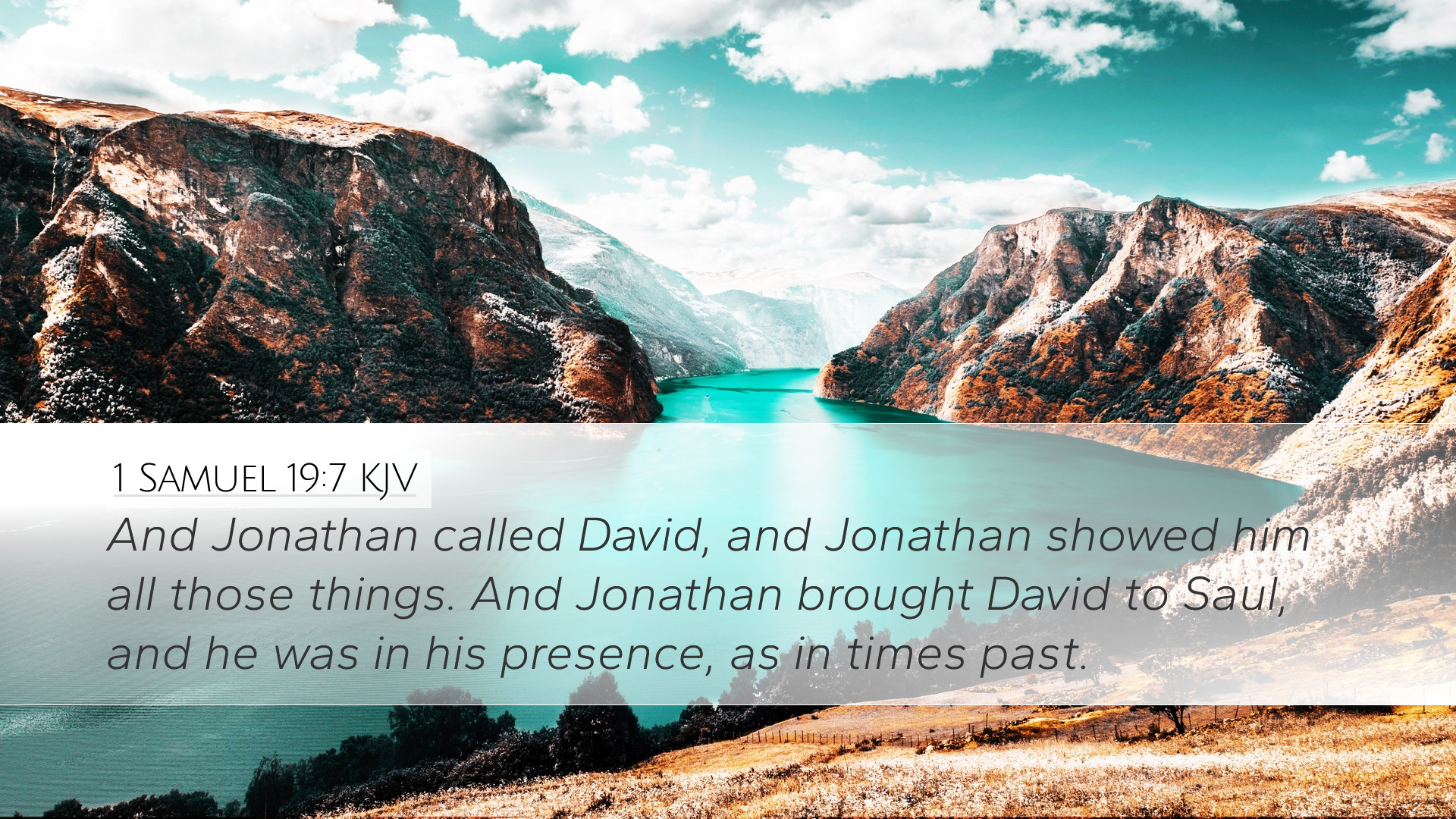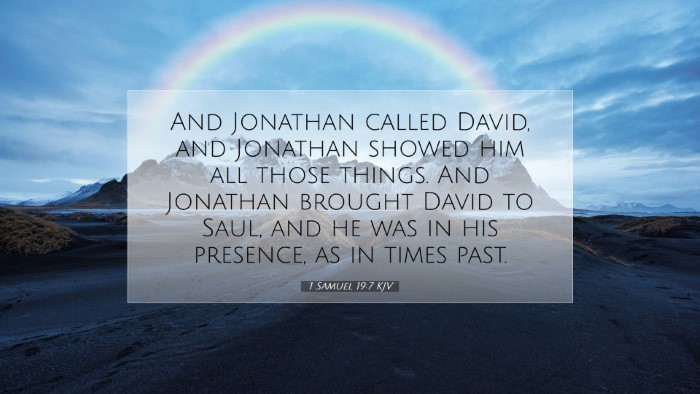Commentary on 1 Samuel 19:7
Verse: "And Jonathan called David, and Jonathan showed him all those things. And Jonathan brought David to Saul, and he was in his presence as in times past."
Contextual Overview
This verse is situated within a larger narrative of conflict and camaraderie between Saul, David, and Jonathan. At this point in the story, Saul's animosity towards David has intensified, spurred by jealousy of David's growing popularity and God's favor upon him. Jonathan, Saul's son, is a loyal friend to David, standing between their friendship and his father's intentions.
Key Themes and Insights
- The Role of Friendship: Jonathan's actions highlight the essence of true friendship, marked by loyalty and courage. In moments of betrayal, Jonathan's integrity shines as he seeks to protect David. This illustrates Proverbs 17:17 ("A friend loves at all times").
- Divine Providence: The intervention of Jonathan serves as a reminder of God's providential care. He not only acts on behalf of David but also shows his awareness of God’s plans that extend beyond human weaknesses and fears.
- Family Conflict: The strained relationship between Saul and David illustrates a common theme in scripture: familial discord arising from differing values and priorities. Jonathan navigates this conflict with wisdom, prioritizing his friendship over familial loyalty.
- Intercession: Jonathan acts as a mediator, an intercessor who works towards peace. He brings David into Saul's presence with an aim not to confront, but to understand and diffuse tensions.
Commentary Insights
Matthew Henry: Henry elaborates on Jonathan’s character as being marked by a profound love for both God and David. He emphasizes that Jonathan's willingness to confront his father illustrates the courage required to stand against wrongdoing for the sake of righteousness.
Albert Barnes: Barnes focuses on the implications of Jonathan’s actions. He remarks on how Jonathan’s support was crucial for David’s survival during a period where he was hunted like an animal. The restoration of David before Saul is also an acknowledgment that God’s plan will be fulfilled regardless of human scheming.
Adam Clarke: Clarke describes the complexity of Saul's character, noting that perturbation and jealousy often overshadowed Saul’s better judgments. He outlines how Jonathan, by bringing David back before Saul, attempted to reestablish peace and normality in a broken relationship, though it was ultimately fraught with peril.
Theological Reflections
This verse offers a rich ground for theological reflection regarding the nature of God’s sovereignty in human affairs. It posits that while human intentions may diverge into conflict (as between Saul and David), God’s will remains victorious. Jonathan’s intercession reflects the mediatorial nature of Christ, as he stands against malign intention to deliver his friend from harm.
Lessons for Modern Believers
- Believers are called to be peacemakers, actively seeking reconciliation in situations of conflict.
- The importance of righteous friendship that transcends familial loyalty when ethical dilemmas arise.
- Trust in God’s plan, even amidst adversity, assures believers that divine sovereignty governs their lives.
Conclusion
This rich narrative exhorts readers to emulate Jonathan’s loyalty, courage, and love. Pastors, students, theologians, and scholars alike can glean that our commitment to uphold truth and protect our friends can have profound implications in a world often marked by jealousy and strife. The legacy of Jonathan's friendship, highlighted in 1 Samuel 19:7, calls us to reflect on our own relationships and our ability to foster peace in a broken world.


